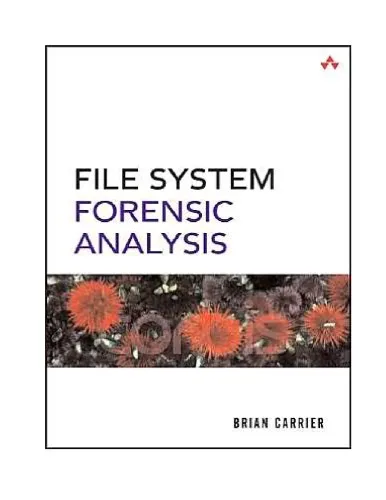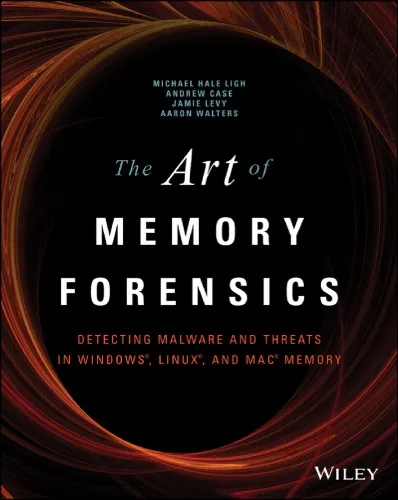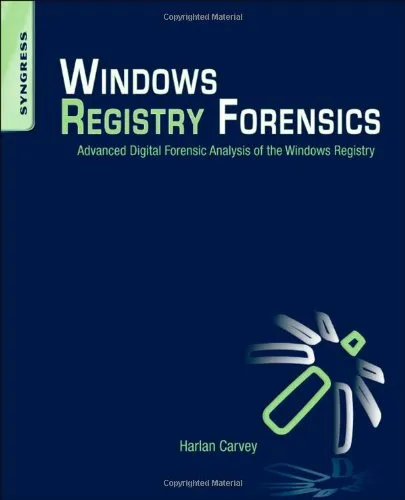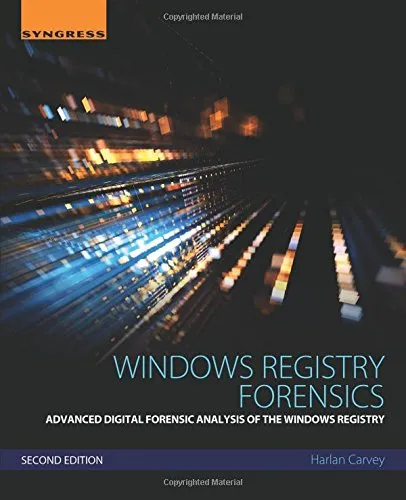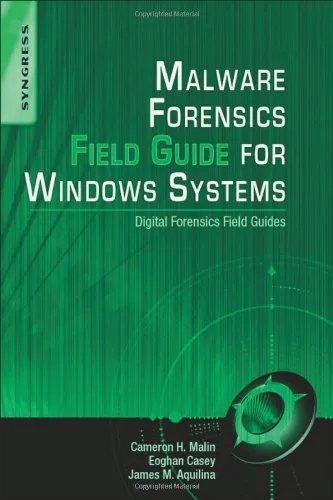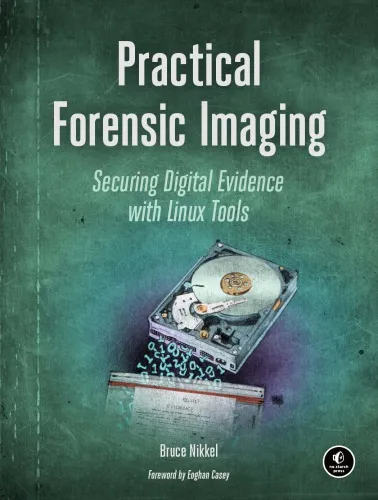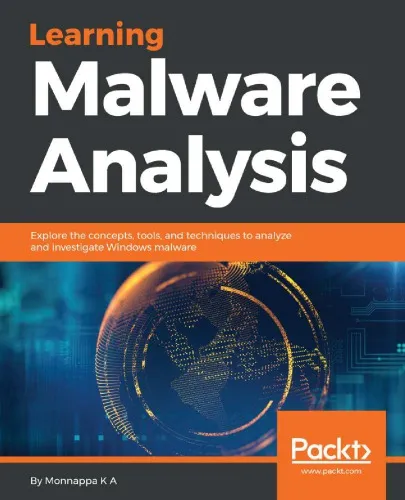File System Forensic Analysis
4.7
Reviews from our users

You Can Ask your questions from this book's AI after Login
Each download or ask from book AI costs 2 points. To earn more free points, please visit the Points Guide Page and complete some valuable actions.Related Refrences:
Persian Summary
Introduction to File System Forensic Analysis
"File System Forensic Analysis" is a comprehensive guide exploring the intricate world of file systems and their forensic analysis. Authored by Brian Carrier, this book serves as an indispensable resource for anyone interested in understanding how digital forensics can uncover crucial information about file storage and retrieval processes. Grounded in rigorous technical insights, this book is designed to cater to both beginners and seasoned professionals in digital forensics and IT security.
Detailed Summary of the Book
The book delves deeply into the internal structures of various file systems, aiming to equip readers with the knowledge necessary for effective forensic investigation. It begins with an overview of digital forensics, setting the stage by explaining the role of file systems in storing digital evidence. Carrier elucidates critical concepts such as how data is organized, accessed, and maintained.
As the chapters unfold, "File System Forensic Analysis" methodically examines different types of file systems, including FAT, NTFS, Ext2/3, and others. Each file system is dissected in terms of its architecture, making it easier for readers to understand how file data is stored, indexed, and managed. Emphasis is placed on analyzing file system metadata, which is crucial for tracing user actions and recovering deleted files.
The book breaks down complex forensic methodologies into digestible steps, highlighting various tools and techniques used in the field. Carrier provides practical insights into analyzing disk structures, carving unallocated space, and interpreting time stamps. Overall, the book is a blend of theory and practical examples, ensuring readers are well-equipped to tackle real-world scenarios.
Key Takeaways
- Understanding the fundamentals of different file systems and their impact on data storage and retrieval.
- Recognizing the significance of file system metadata in digital investigations.
- Learning effective strategies for recovering deleted files and analyzing fragmented data.
- Mastering the use of tools and techniques critical for performing thorough forensic analysis.
- Applying acquired knowledge to real-world forensic challenges, improving problem-solving skills in IT security.
Famous Quotes from the Book
"In the realm of digital forensics, understanding the underlying structure of file systems is akin to a detective knowing the streets of the city."
"Each byte of data tells a story; it's our job to decipher its narrative with precision and care."
Why This Book Matters
"File System Forensic Analysis" stands out as a critical contribution to the field of digital forensics. As our reliance on digital technologies escalates, so does the sophistication of cybercrimes. In this context, the understanding of file systems becomes paramount. This book empowers readers to uncover vital evidence hidden in the minutiae of file systems, making it an essential tool for law enforcement, cybersecurity professionals, and legal practitioners.
The book's structured approach to explaining file systems and its emphasis on practical application ensure that even complex topics are rendered accessible and engaging. By bridging the gap between theory and practice, Brian Carrier has crafted a resource that not only educates but also inspires the next generation of digital forensic experts.
Whether you're new to the field or looking to deepen your understanding, "File System Forensic Analysis" offers invaluable insights that will enhance your analytical capabilities and help secure the digital future.
Free Direct Download
You Can Download this book after Login
Accessing books through legal platforms and public libraries not only supports the rights of authors and publishers but also contributes to the sustainability of reading culture. Before downloading, please take a moment to consider these options.
Find this book on other platforms:
WorldCat helps you find books in libraries worldwide.
See ratings, reviews, and discussions on Goodreads.
Find and buy rare or used books on AbeBooks.
1928
بازدید4.7
امتیاز0
نظر98%
رضایتReviews:
4.7
Based on 0 users review
Questions & Answers
Ask questions about this book or help others by answering
No questions yet. Be the first to ask!
